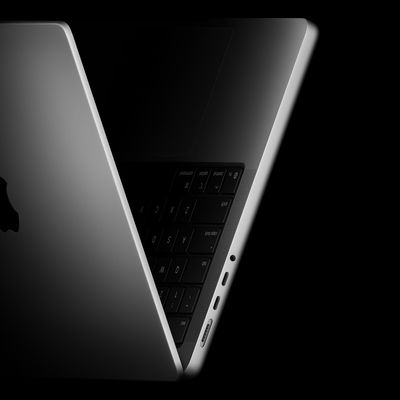About two weeks ago, Qualcomm reported that Apple suppliers were underpaying royalties in the second fiscal quarter of 2017, as a way for Apple to regain the unpaid royalties owed to the company by Qualcomm. At the time, Qualcomm wasn't sure whether or not Apple would continue to pay royalties at all, and today the manufacturer -- which provides LTE modems for iPhones -- has said that Apple will not pay its iPhone suppliers for royalties related to sales in Q1 2017.
Furthermore, Qualcomm stated that Apple has "indicated it will continue this behavior until its dispute with Qualcomm is resolved." The royalty cut-off hurts Qualcomm because the manufacturer's licensing deals are directly with iPhone suppliers.

The total loss of royalty revenue is estimated by Qualcomm to be about $500 million, which is expected to hit the company hard in terms of share prices and investors watching the dispute between the two companies. In its report adjusting the financial guidance for the third quarter of 2017, Qualcomm's previous estimate of $5.3 billion - $6.1 billion in revenue has been marked down to $4.8 billion - $5.6 billion, amid the ongoing suing and counter-suing actions taking place between Qualcomm and Apple.
In a statement, Qualcomm general counsel Don Rosenberg said that the company will continue to "vigorously" defend its business model as the legal dispute continues.
Qualcomm Incorporated today announced that it has been informed by Apple Inc. that Apple is withholding payments to its contract manufacturers for the royalties those contract manufacturers owe under their licenses with Qualcomm for sales during the quarter ended March 31, 2017. Apple has indicated it will continue this behavior until its dispute with Qualcomm is resolved.
"Apple is improperly interfering with Qualcomm's long-standing agreements with Qualcomm's licensees," said Don Rosenberg, executive vice president and general counsel of Qualcomm. "These license agreements remain valid and enforceable. While Apple has acknowledged that payment is owed for the use of Qualcomm's valuable intellectual property, it nevertheless continues to interfere with our contracts. Apple has now unilaterally declared the contract terms unacceptable; the same terms that have applied to iPhones and cellular-enabled iPads for a decade. Apple's continued interference with Qualcomm's agreements to which Apple is not a party is wrongful and the latest step in Apple's global attack on Qualcomm. We will continue vigorously to defend our business model, and pursue our right to protect and receive fair value for our technological contributions to the industry."
The legal dispute between the two companies follows a complaint filed by the Federal Trade Commission, stating that Qualcomm used anticompetitive tactics to remain on top of the LTE modem supply chain for smartphones. Another contributing factor to the bad blood between the companies centers around Apple's decision to start using modem chips from Intel in some of the iPhone 7 devices launched last year, instead of tapping Qualcomm exclusively like it usually does.
Apple claimed that Qualcomm was charging unfair royalties "for technologies they have nothing to do with," since the manufacturer provides only one part of the whole of the iPhone. "Despite being just one of over a dozen companies who contributed to basic cellular standards, Qualcomm insists on charging Apple at least five times more in payments than all the other cellular patent licensors we have agreements with combined," the Cupertino company stated in its lawsuit.
Update: In a statement to Axios, Apple confirmed that it will not make further royalty payments to Qualcomm until a court steps in to figure out how much is owed.
"We've been trying to reach a licensing agreement with Qualcomm for more than five years but they have refused to negotiate fair terms," Apple told Axios in a statement. "Without an agreed-upon rate to determine how much is owed, we have suspended payments until the correct amount can be determined by the court. As we've said before, Qualcomm's demands are unreasonable and they have been charging higher rates based on our innovation, not their own."





















